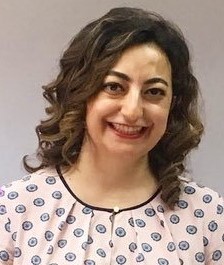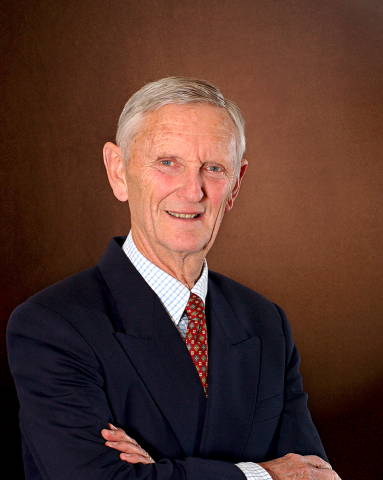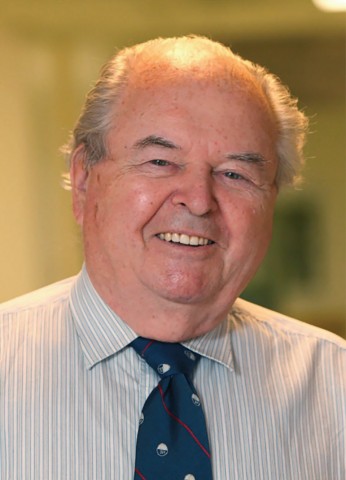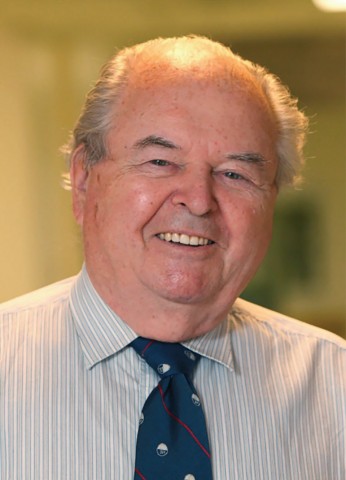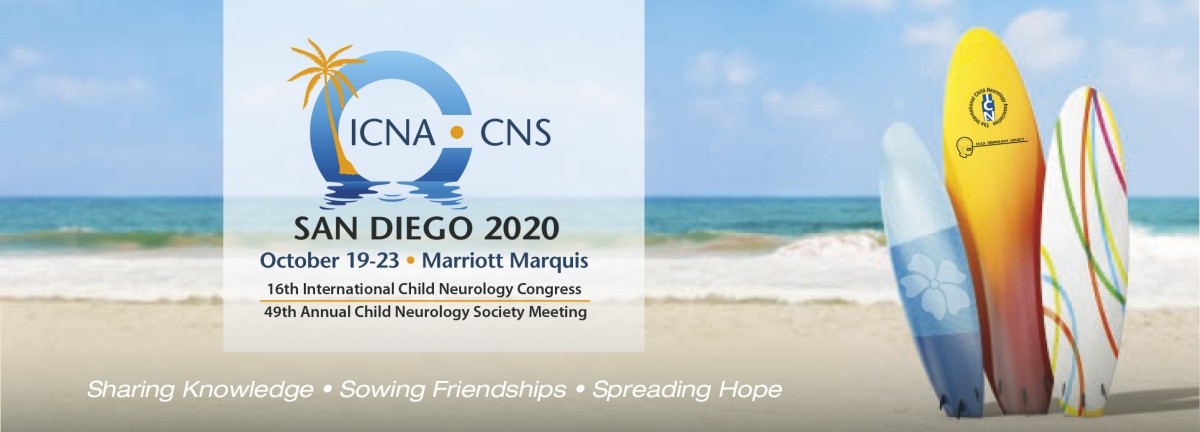- Details
- Shesy Rawther
- News
- Hits: 10231
Dear colleagues and friends,
As the elected chair of the Future Leaders of the ICNA (FLICNA) committee, I would like to thank all members of the ICNA. It is my great pleasure to be a part of this vibrant and welcoming community.
FLICNA is a newly formed group of young generation of child neurologists worldwide. We aim to assess the needs and aspirations of young colleagues and provide a platform for communication and collective thinking. I am very enthusiastic to work with friends from different backgrounds and to arrange e-meetings to come together and form a network. I hope to organize online and face-to-face lectures focusing on practical topics that can improve our daily clinical practice, adapt educational resources and discuss international research projects. With the mentorship of experienced child neurologists, I hope FLICNA will be a thriving body to include all colleagues to master core curriculum subjects, shape our future careers, promote research networking and improve our understanding of pediatric neurology.
- Esra Serdaroglu, MD PhD
Read More
- Details
- ICNA
- News
- Hits: 5911
It is with great sadness that I report the passing on Sunday Nov 10 of Dr Ian Hopkins, at age 85 years.
Ian was Australia's first paediatric neurologist, commencing work in this role at the Royal Children's Hospital, Melbourne in 1967. Ian established neurology services at the RCH, was the inaugural Director of Neurology between 1977-1987, and continued working as a senior neurologist until 2001. Amongst his many achievements, Ian was instrumental in setting up paediatric EEG, video-EEG and epilepsy surgery services in Melbourne and around Australia.Ian will be remembered for his astute clinical skills, his warm and caring nature, and his commitment to teaching and research, these personal qualities and achievements being recognised during his lifetime by several local and national awards and honours. Ian's influence on child neurology continues through the clinical skills of practising neurologists whom he trained, and the syndromes that carry his name i.e. Hopkins syndrome and Pitt-Hopkins syndrome.
Ian is survived by his wife Barbara, their children and grandchildren.
Simon Harvey
on behalf of current and past neurologist at the RCH.
- Details
- ICNA
- News
- Hits: 5077
Dr. Frederick Andermann, one of Canada's most distinguished neurologists, passed away quietly on June 16, 2019 in Montreal at the age of 88. Loving husband and scientific collaborator of Dr. Eva Andermann (née Deutsch) for 54 years, devoted father and father-in-law of Lisa Andermann and Michael Prokaziuk, Anne Andermann and Carlos Fraenkel, Mark Andermann and Maria Lehtinen, and cherished Opapa of his grandchildren Hannah and James Prokaziuk, Lara and Ben Fraenkel, and Leila and Kaija Andermann.
For over 60 years, Dr. Andermann showed a remarkable ability to identify rare neurological syndromes and assemble multidisciplinary teams of researchers to conduct further clinical investigations to better understand these unusual presentations and to provide patients and families with hope for treatment. The results of his inquiries in such areas as cortical dysplasias, progressive myoclonic epilepsies, epilepsy surgery, and genetically determined neurological disorders have been published in nine books and over 500 scientific papers. His monographs on alternating hemiplegia, Rasmussen's syndrome, and migraine and epilepsy have contributed significantly to the understanding and treatment of these disorders. The Andermanns were also credited with having described a rare genetically-inherited autosomal recessive neurological condition associated with agenesis of the corpus callosum and peripheral neuropathy that is now known as Andermann Syndrome. Dr. Andermann was a generous and enthusiastic teacher, providing training and inspiration to generations of future epilepsy experts from all over the world.
Dr. Andermann has been recognized for his outstanding achievements, and is the winner of numerous awards and prizes, including the 1995 Distinguished Clinical Investigator Award from the American Epilepsy Society and Milken Foundation, the 1999 Penfield Award for Contribution in Outstanding Canadian Epileptology from the Canadian League Against Epilepsy, the 2003 Prix Wilder Penfield from the Province of Quebec and a 2006 Neuro Lifetime Achievement Award from the Montreal Neurological Institute and Hospital. In 2006 he was appointed as an Officer of the Order of Canada and in 2013 he received the Order of Québec. In 2011 he was recognized as a Fellow of the Royal Society of Canada, for his distinguished work in science. He retired from clinical work and training of fellows in 2014, but continued to travel to medical conferences and publish scientific articles. A survivor of the Holocaust, Dr. Andermann was a devoted son to his mother Anny (née Hubner) and his father Adolf Andermann, and a caring nephew to his aunt Julia. He was born and raised in Czernowitz, in the Bukovina, belonging at that time to Romania, and formerly an Eastern outpost of the Austro-Hungarian Empire. When this area was annexed by the Soviet Union in 1940, his family had 24 hours to collect all their belongings and flee to Bucharest, where his mother volunteered for an organization dedicated to rescuing war orphans. After the war, the family moved to Vienna and Paris before immigrating to Canada in 1950. He met his wife Eva in 1958 when she was an undergraduate student at McGill and they married in 1965.
Dr. Andermann trained in medicine at the Université de Montreal while also working for the family business, Anderco Import, travelling across Canada selling imported combs, scissors and musical instruments. He trained in neurology at the Montreal Neurological Institute and Hospital (the Neuro) where he spent his entire career. He rose through the ranks to Professor and Professor Emeritus in the Departments of Neurology and Neurosurgery and Pediatrics of McGill University. Dr. Andermann was the Director of the Epilepsy Unit and Seizure Clinic at the Neuro for thirty-five years. He was a founding member, president and past president of the Canadian League Against Epilepsy (CLAE), president of the Canadian Neurological Society, the Canadian Society for Clinical Electrophysiology, the Canadian Association of Child Neurologists and the Eastern EEG Society. In the International League Against Epilepsy (ILAE) he was chairman of the Task Force on Classification and of the Commission on Classification and Terminology from 1993 to 1997, first vice president from 2001 to 2005, and second vice president from 2005 to 2009.
Dr. Andermann was well-known as a lover of birds, cows, horses and other animals. He relished his time with family, neighbours, and colleagues on his farm near Mansonville, Quebec. He loved travelling around the world with his wife Eva to international conferences to meet his colleagues and former students, and to gain new experiences, especially culinary. He had a great appetite for life. He spoke many languages and was a phenomenal communicator with an excellent memory, and a voracious reader. Most of all, he had a gift for listening to people and making them feel heard and important. But his greatest joy was being around his children and his six grandchildren. He will be missed by his family, friends, and colleagues around the globe. The family would like to thank the staff of the coronary care unit, dialysis unit, and intensive care unit at the Royal Victoria Hospital, and to his longstanding physicians and his caregivers, especially Jennifer and Bernice, who all provided outstanding and compassionate care. Funeral service from Paperman & Sons, 3888 Rue Jean-Talon W., on Wednesday, June 19 at 11:30am. Burial at Congregation Shaar Hashomayim Cemetery, 1250 chemin de la Forêt, Outremont. Shiva at his home, for details call 514-733-7101.
Contributions in his memory may be made to the Frederick Andermann Clinical and Research Fellowship in Epileptology and EEG at McGill University to continue his legacy of training epilepsy specialists worldwide. For more details see: https://www.mcgill.ca/channels/news/new-fellowship-targets-epilepsy-174860. Donations to the Fellowship can be made at www.alumni.mcgill.ca/give under "I want to support - Other" and specify the "Frederick Andermann Fellowship in Epileptology and EEG" or by calling Arnav Manchanda at the McGill Faculty of Medicine Advancement Office 514-398-2529 or Wendy at the Jewish Community Foundation 514-734-1592. For any questions, you can also contact the Program Director of the Fellowship, Dr. Eliane Kobayashi, at This email address is being protected from spambots. You need JavaScript enabled to view it. .
Source: McGill University
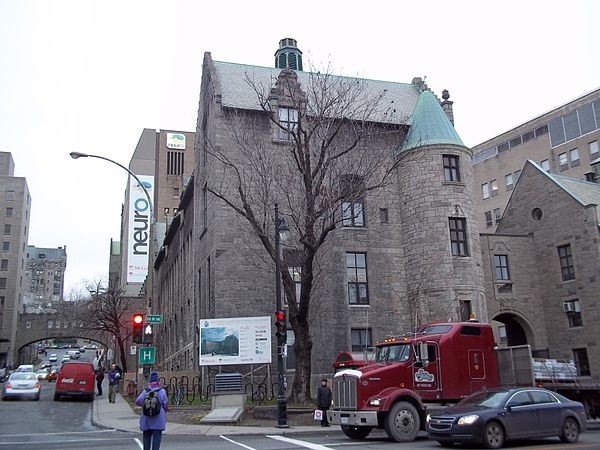
- Details
- ICNA
- News
- Hits: 8182
The Montreal Neurological Institute will hold a Tribute to Fred Andermann, who passed away earlier this year. The meeting will be held on December 4/5 (just before the meeting of the American Epilepsy Society). Details of the program can be found at https://www.mcgill.ca/neuro/channels/event/tribute-frederick-andermann-298968. The meeting will include an international panel of speakers who will address the work of Fred Andermann as well as latest developments in the genetics, evaluation and treatment of epilepsy. Registration is free but required. There will also be a Gala Dinner on December 4 (for which there is a fee).
Read More
- Details
- ICNA
- News
- Hits: 4642
| September 15 - November 15 | Seminar/Symposium Proposals Portal open |
| November 15, 2019 | Deadline for symposia proposals [CLOSED] |
| November 15, 2019 | Abstract submissions open |
| February 5, 2019 | Plenary / Award speakers announced |
| January 31, 2019 | Accepted symposia proposals announced |
| February 5, 2020 | Preliminary program announced |
| February 3, 2020 | Deadline for abstract submissions |
| February 5 - March 15, 2020 | Industry supported satellite symposia application |
| March 15, 2020 | Final program and registration information posted |
| April March 15, 2020 March 15, 2020 |
Registration portal opens. Hotel reservations accepted Exhibit Booth information posted |
| March 15 - May 15, 2020 | Exhibit Booth Application |
| April 1 - April 15, 2020 | Late Breaking Abstract submissions Accepted |
